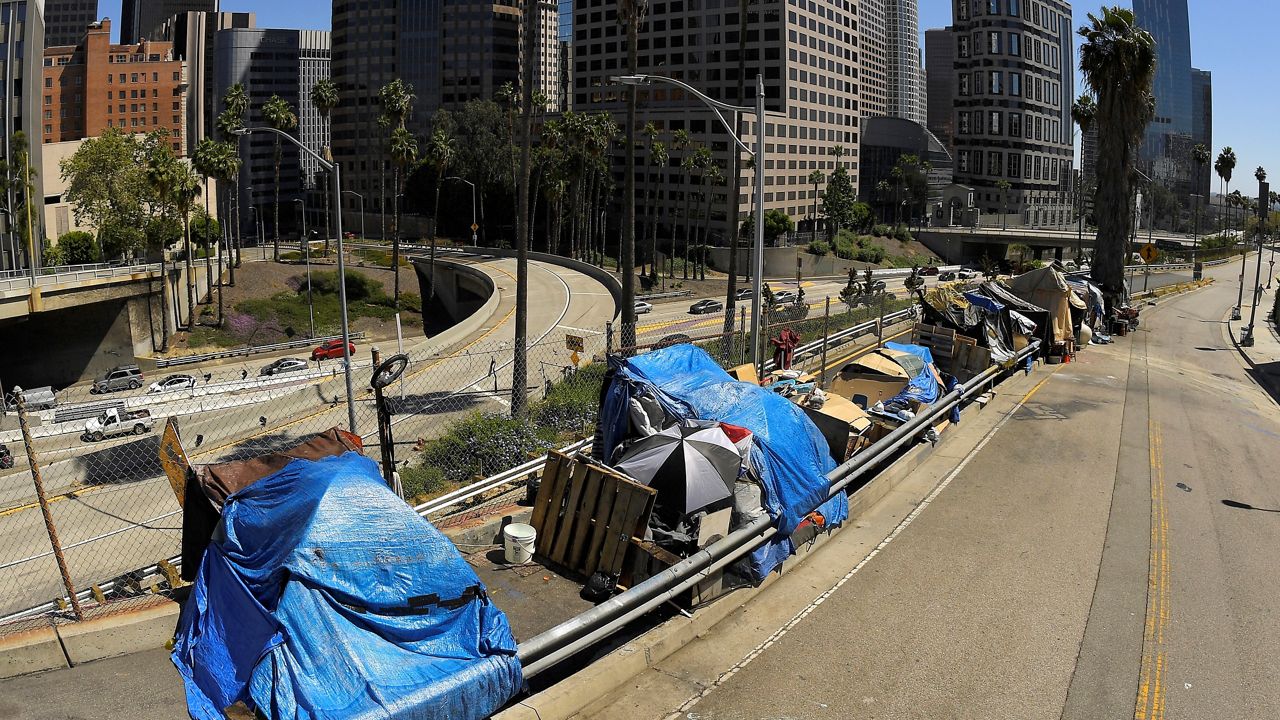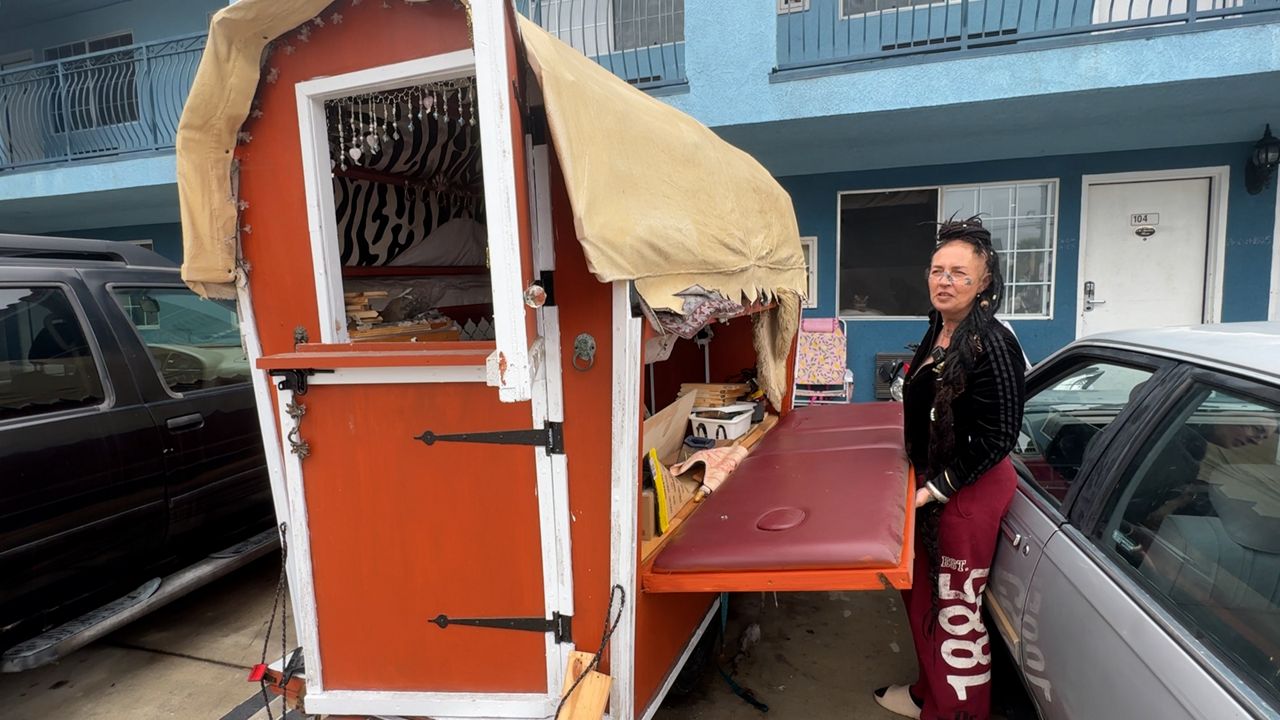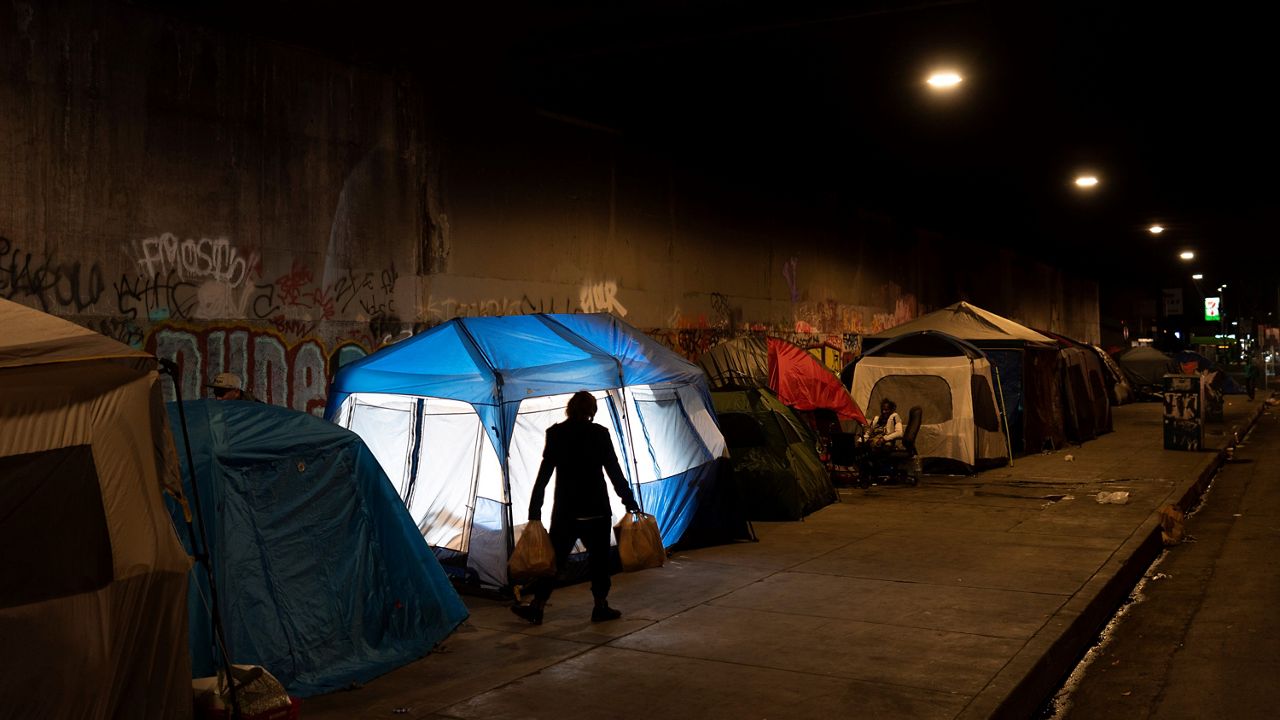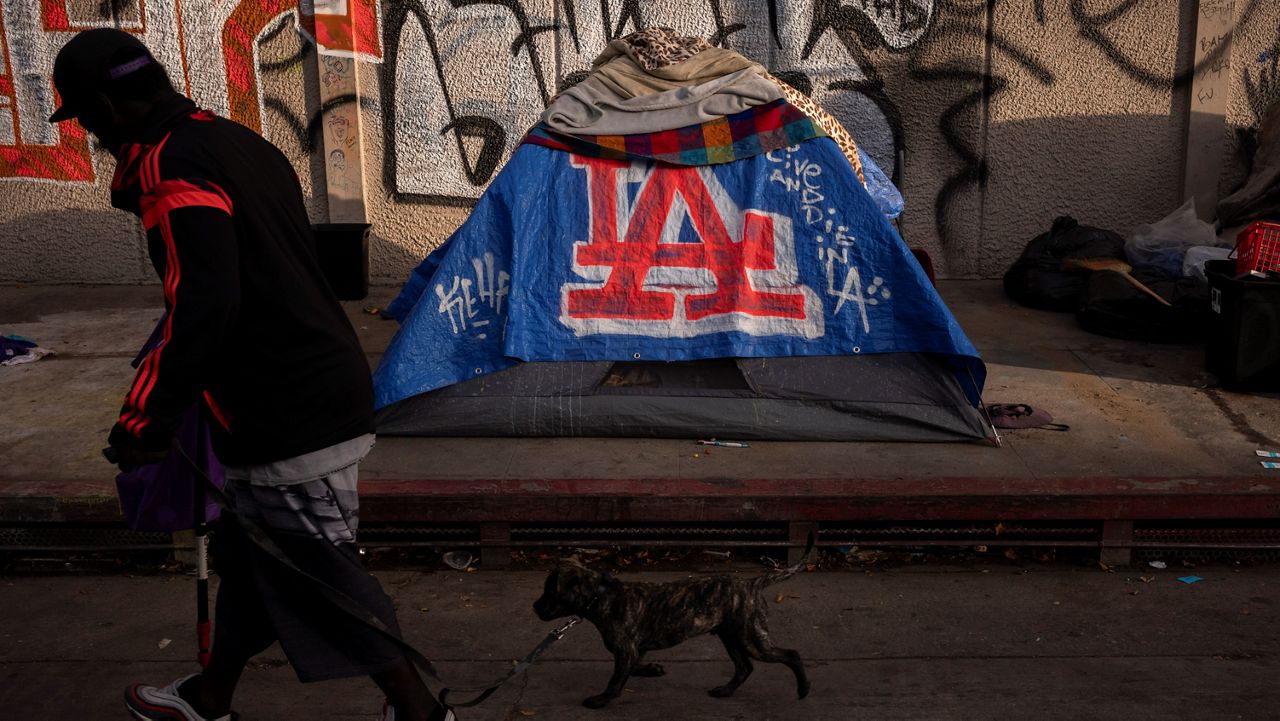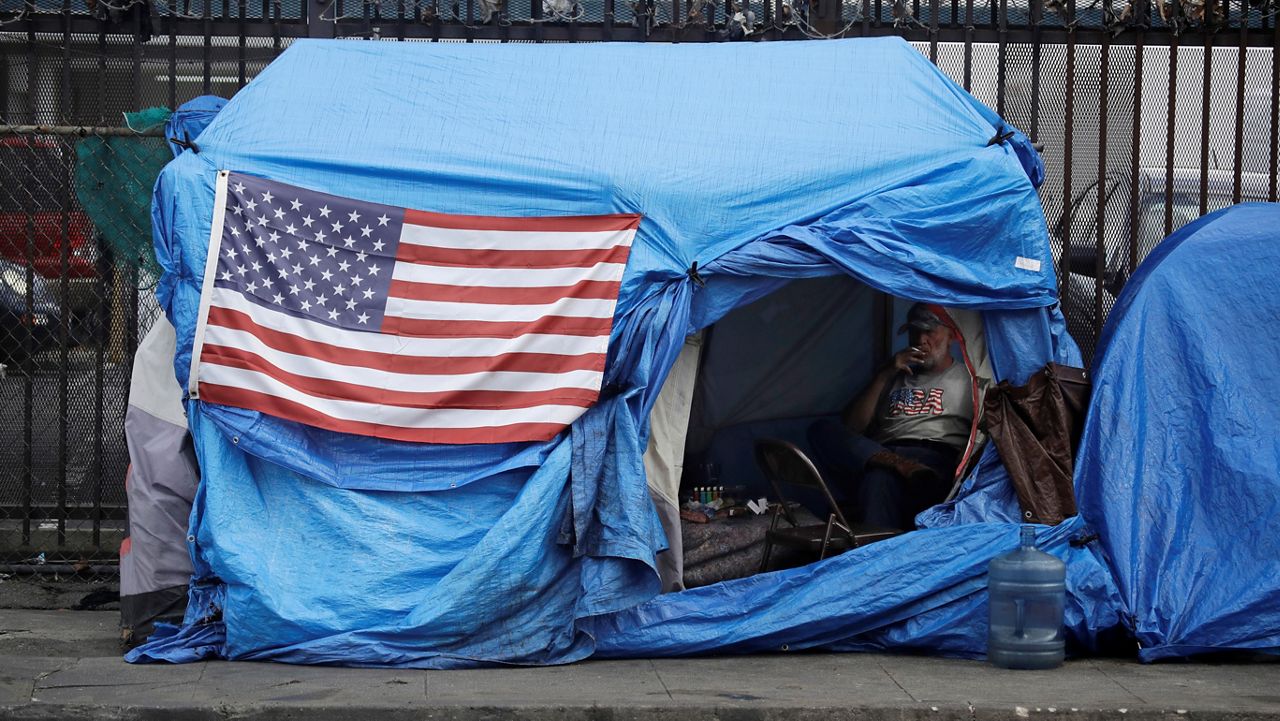LOS ANGELES (CNS) — A federal judge overseeing a lawsuit dealing with homelessness in Los Angeles exceeded his authority by refusing to dismiss the case even after plaintiffs agreed to Los Angeles County’s settlement offer, the county alleges in new court papers.
In motions filed late Friday, the county contends that U.S. District Judge David Carter’s denial constituted “clear error” and exceeds the court’s powers — which the judge was previously admonished by an appeals court not to do.
The county further asked for a stay of the case while it seeks an appellate review of Carter’s April 20 order in which he denied the parties’ proposed stipulation, lifted a stay and reinstated trial proceedings.
The county also withdrew consent for ex parte communications in which Carter has been communicating with persons involved in the lawsuit outside of court in attempts to resolve the matter.
At an April 20 hearing in Los Angeles federal court, Carter — for the second time in five months — rejected the county’s settlement offer, denying the county and the LA Alliance for Human Rights’ joint stipulation to dismiss the case, saying he needed more “oversight and enforcement powers.”
Carter approved the city of Los Angeles’ settlement with the LA Alliance coalition of downtown business owners and housed and unhoused residents last June.
Mira Hashmall, an outside attorney for the county in the lawsuit, said Friday that Los Angeles County has “pledged an unprecedented $1.1 billion in additional public funds and resources to address and prevent homelessness during the three years of litigation.”
Despite the commitment, Hashmall said in a statement, Carter refused to dismiss the case, “essentially forcing the parties to continue litigating a lawsuit that for all intents and purposes has been settled.”
She said the county would appeal the judge’s order to the U.S. 9th Circuit Court of Appeals “because it violates well-established legal precedent and runs counter to the constitutional separation of powers.”
Hashmall said such a step is necessary “to prevent the parties from wasting needless time, money and energy in court when everyone’s efforts should now be focused on helping those who need it most. To that end, the county will move forward as intended to commit the additional $850.5 million in new resources and beds.”
She added that “in the renewed spirit of cooperation with the city and plaintiffs, we are determined to do whatever we can to address the humanitarian crisis in our streets.”
The lawsuit filed three years ago by the LA Alliance alleged the county and city of Los Angeles were not doing enough to get the homeless off the streets.
The county’s first settlement proposal with the LA Alliance in September would have nearly doubled the number of outreach teams serving people with severe mental illness and added 300 substance use and mental health beds, among other efforts aimed at helping the region’s most vulnerable residents.
After Carter urged the two parties to “do better,” the county returned with a revised offer that would have provided an extra 700 new mental health and substance use disorder beds, bringing the total number of these types of beds to 1,000, and effectively tripled the value of the resources in the settlement agreement from $236 million to over $850 million, according to the county.
The agreement would also have required Los Angeles County to make available 450 new subsidies for beds in residential facilities used primarily by people with severe mental illness who are at risk of homelessness.
The proposal specified that the county would open 610 beds by the end of the year. The remaining 390 would be spread over another two years.
Both the county and the LA Alliance told Carter at the April 20 hearing that they were satisfied with the terms of the agreement and believed, while it wouldn’t be enough to fix the homelessness crisis, it should be enough to resolve the lawsuit.
But Carter again balked at the number of beds that would be created by the agreement and said greater accountability and oversight by the court were needed.
Daniel Conway, a spokesman for the LA Alliance, said the judge’s denial “was not surprising” although progress had been made in what the county was willing to offer.
“There were five times more beds (in the rejected proposal) than in the fall,” Conway said. “That being said, the judge has been very clear about what he wanted to see — monitoring and a dramatic increase in mental health beds. We are pleased we were able to make progress, but the county’s offer fell short of what the judge wanted to see.”
Carter has been criticized for his rulings in the case, which some have called unreasonable. Two years ago, he ordered the city and county to house every homeless person living on Skid Row within 180 days and ordered that $1 billion in government funds be frozen in an escrow account. The Ninth Circuit struck that ruling down — and admonished the judge for exceeding his bounds.






